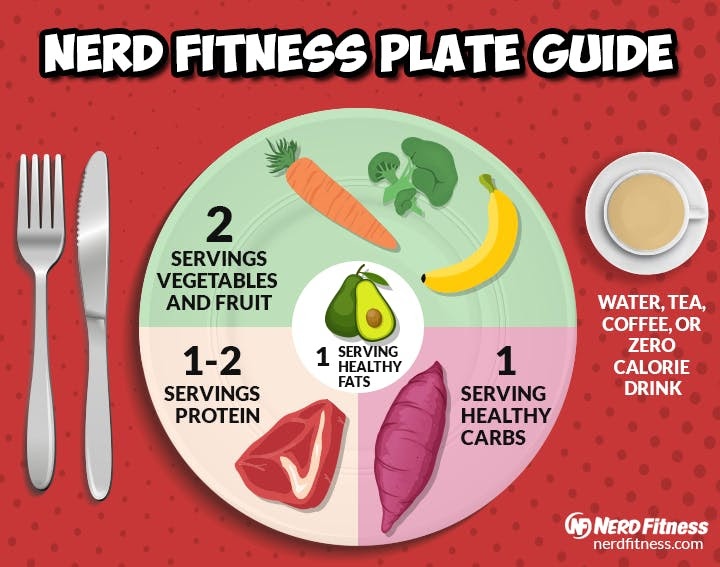By:
TrainCoreFit
05-22-2024

Unlock the key to optimal health with our beginner’s guide to nutrition – discover how to eat well and thrive!
When it comes to achieving your fitness goals, nutrition plays a crucial role. Here are some tips to help you make better food choices:
Setting realistic goals is key. Start by identifying what you want to achieve with your nutrition plan. Whether it’s weight loss, muscle gain, or overall health improvement, having clear objectives will guide your food choices.
Tracking your progress can also be beneficial. Keep a food journal or use a mobile app to monitor your daily intake. This can help you identify patterns, track your macros, and make adjustments as needed.
A well-rounded workout routine should include a mix of cardio and strength training exercises. Cardio helps improve cardiovascular health, while strength training builds muscle and boosts metabolism.
For beginners, start with simple bodyweight exercises like squats, lunges, and push-ups. As you progress, you can incorporate weights or resistance bands for added intensity. It’s essential to challenge your muscles to see progress.
To avoid plateaus, vary your workouts regularly. Try different forms of exercise like yoga, Pilates, or HIIT to keep your body guessing and prevent boredom.
Eating a balanced diet is crucial for fueling your workouts and promoting recovery. Aim to include a variety of foods from all food groups in your meals.

Image courtesy of www.nerdfitness.com via Google Images
Focus on macronutrients like carbohydrates, proteins, and fats. Carbs provide energy for your workouts, proteins support muscle growth and repair, and fats are essential for hormone production and nutrient absorption.
Meal planning and prep can make it easier to stick to your nutrition goals. Take some time at the beginning of the week to plan your meals and snacks, and consider batch cooking for convenience.
Creating a gym plan that aligns with your fitness goals is crucial for success. Consider factors like your current fitness level, workout preferences, and time availability when designing your routine.
Incorporate a mix of exercises that target different muscle groups. Include compound movements like squats, deadlifts, and bench presses for full-body strength and coordination.
Staying motivated can be challenging, so find workout buddies or join group classes for accountability and support. Remember to listen to your body and rest when needed to prevent overtraining.
Warming up before a workout helps prepare your body for the physical demands ahead. Start with a few minutes of light cardio to increase blood flow to your muscles and joints.

Image courtesy of www.pinterest.com via Google Images
Incorporate dynamic stretches like leg swings, arm circles, and hip rotations to improve flexibility and mobility. Avoid static stretching before working out, as this can lead to decreased performance.
Cooling down after a workout is just as crucial. This helps promote blood circulation, reduce muscle soreness, and prevent injury. Finish your workout with static stretches focusing on the muscles you worked.
Rest and recovery are essential components of a successful fitness plan. Your muscles need time to repair and grow stronger after intense workouts.
Include rest days in your workout schedule to allow your body to recuperate. You can still stay active on rest days with light activities like walking, swimming, or yoga.
Prioritize quality sleep for optimal recovery. Aim for 7-9 hours of restful sleep each night to support hormone regulation, muscle repair, and overall well-being.
Supplements can complement your nutrition plan and help fill nutrient gaps. However, they should not replace whole foods in your diet.

Image courtesy of ontd-political.livejournal.com via Google Images
Common supplements for fitness enthusiasts include protein powder, creatine, BCAAs, and multivitamins. Consult with a healthcare provider or registered dietitian before adding supplements to your routine.
Remember that supplements are not a magic solution and should be used in conjunction with a balanced diet and regular exercise for best results.
Managing stress and staying mentally focused are crucial for long-term fitness success. Incorporate mindfulness practices like meditation, deep breathing, and visualization techniques into your routine.
Stress can impact your body’s ability to recover and adapt to exercise. Find time for self-care activities like reading, taking a bath, or spending time in nature to relax and unwind.
Stay connected to your goals and motivations. Celebrate small victories along the way and remember that progress takes time. Stay positive and trust the process.
By combining tips, workouts, nutrition, and a well-planned gym routine, you can set yourself up for fitness success. Remember to stay consistent, listen to your body, and seek support when needed.
Whether you’re a beginner or experienced fitness enthusiast, building a strong foundation of nutrition knowledge and exercise habits will help you reach your goals and maintain a healthy lifestyle for years to come.
Table of Contents